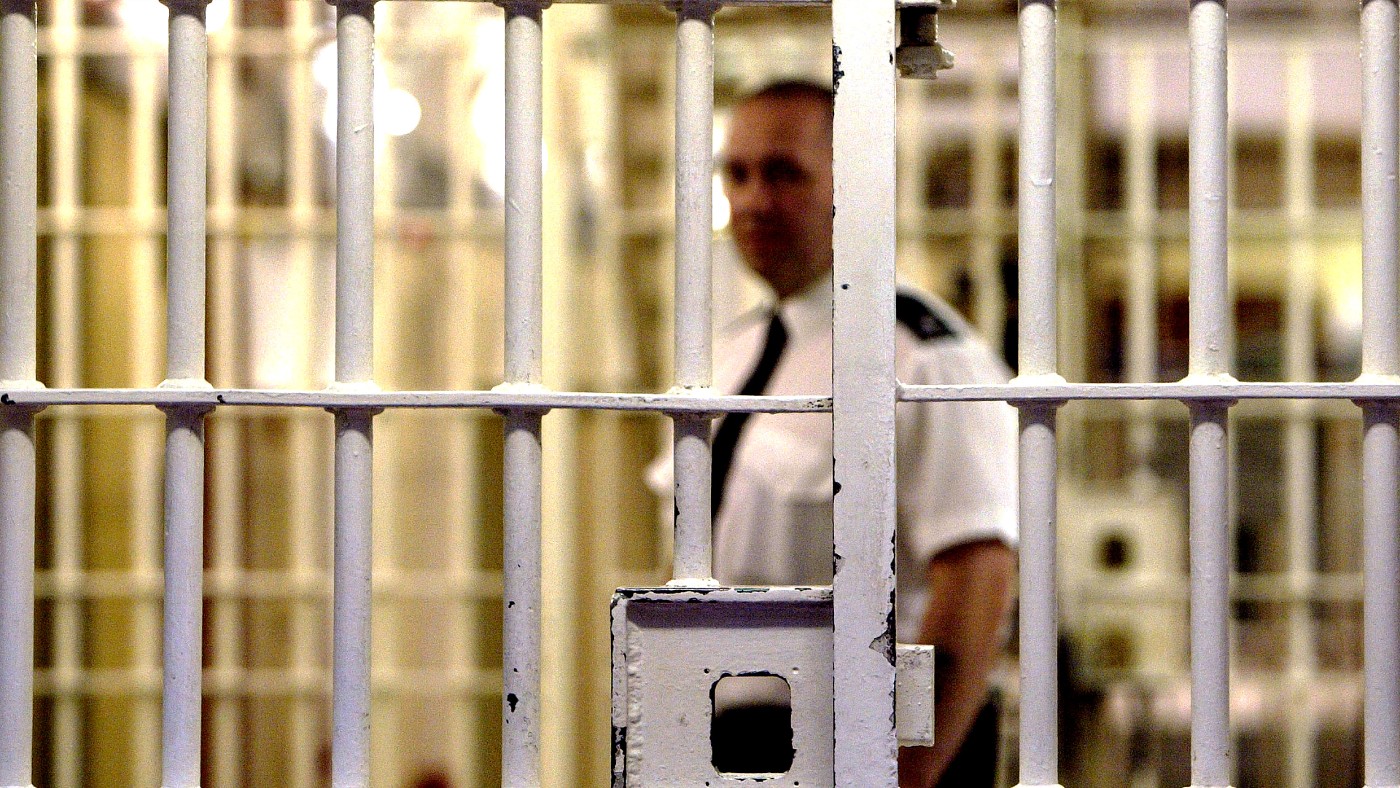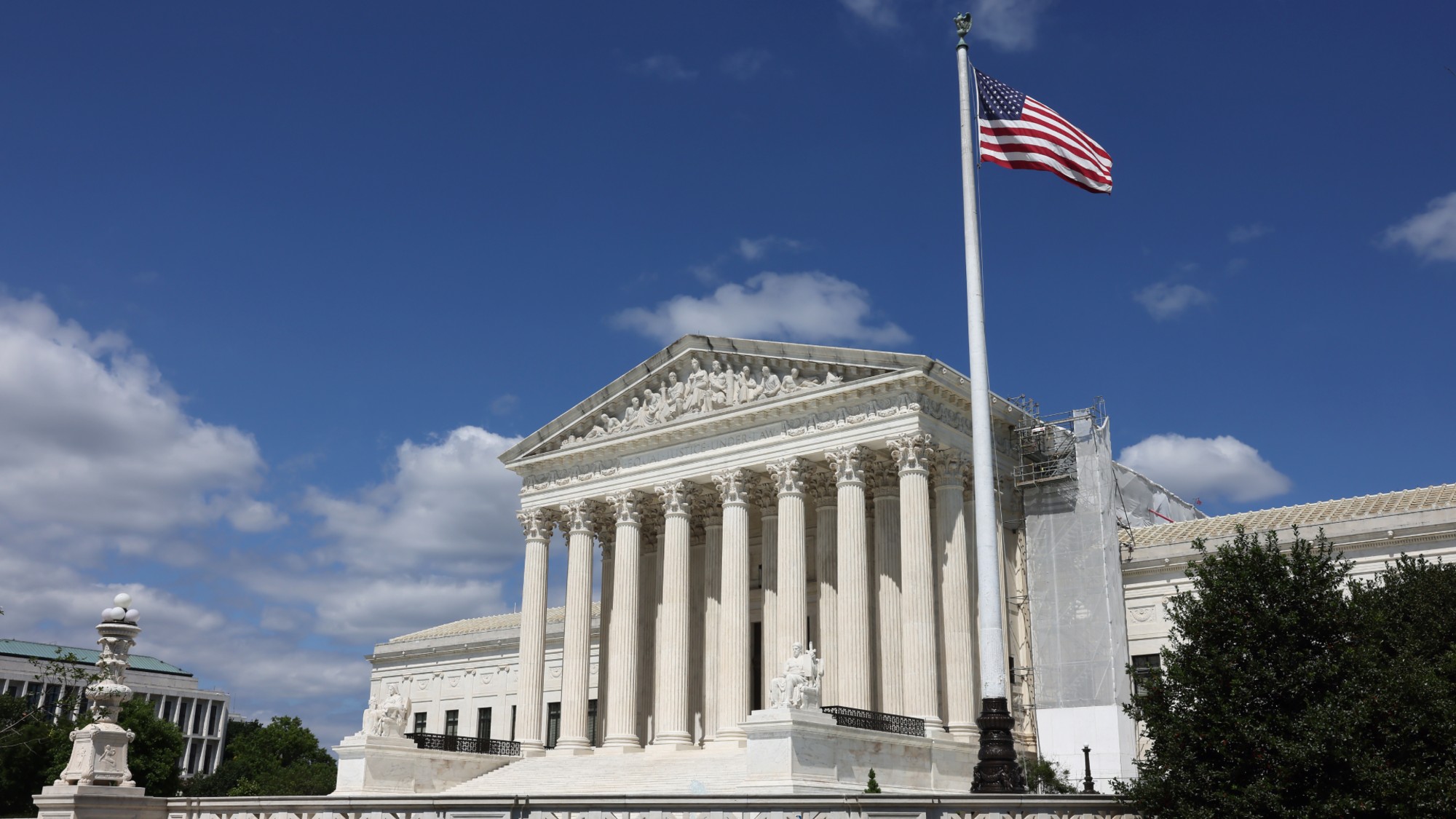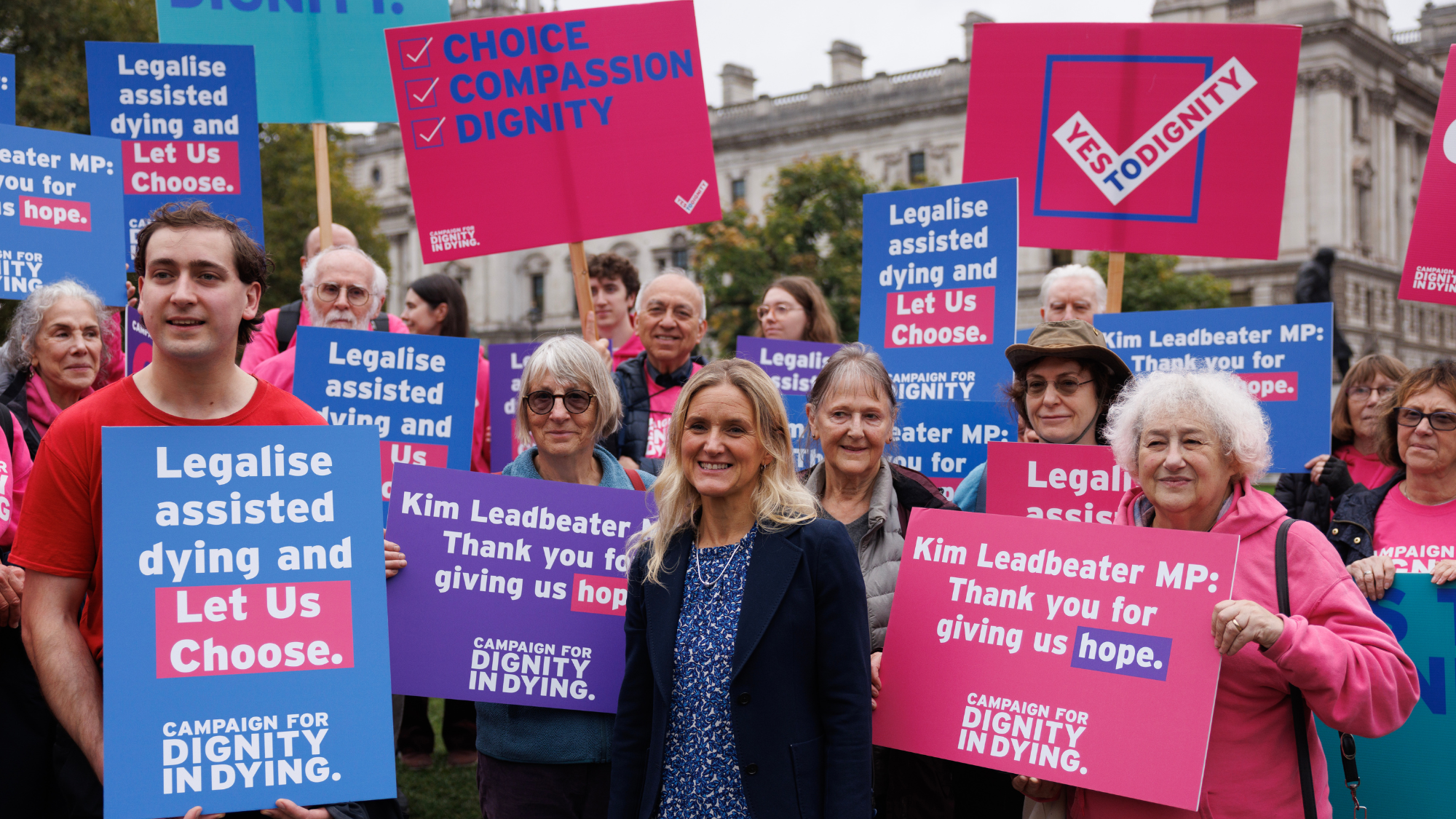Texas-style justice: a sticking-plaster fix for UK prisons?
Sceptics say sentencing reform kicks the can down the road

A free daily email with the biggest news stories of the day – and the best features from TheWeek.com
You are now subscribed
Your newsletter sign-up was successful
Prisons will release some "less serious offenders" on probation early to relieve overcrowding in jails in England and Wales, the justice secretary has announced.
Writing for The Telegraph, Alex Chalk said the UK could learn from Texas, which has reduced sentencing verdicts for non-violent offenders and promoted probation and drug rehabilitation as alternatives to jail time.
'Like putting a plaster on a deep wound'
After figures published last month revealed that almost all prisons across England and Wales are either full or close to full capacity, Chalk said that scrapping prison sentences of less than a year for most offenders would end the "cycle of criminality" caused by a "merry-go-round of short sentences".
The Week
Escape your echo chamber. Get the facts behind the news, plus analysis from multiple perspectives.

Sign up for The Week's Free Newsletters
From our morning news briefing to a weekly Good News Newsletter, get the best of The Week delivered directly to your inbox.
From our morning news briefing to a weekly Good News Newsletter, get the best of The Week delivered directly to your inbox.
He said a "short stretch of a few months inside" isn't enough time to rehabilitate criminals, but is "more than enough to dislocate them from family, work and home connections" that keep them from crime. "Too often", he added, "offenders routinely turn back to crime as soon as they walk out of the prison gates".
Damian Hinds, the Prisons and Probation Minister, said short prison sentences "generally don't work". Also writing for The Telegraph, he said that "like putting a plaster on a deep wound", short jail terms "might hide the problem temporarily", but they "don't heal it".
Pia Sinha, chief executive of the Prison Reform Trust, welcomed the move. She said it has "long been recognised" that short sentences "do more harm than good" and that "community orders are more effective at reducing reoffending".
Speaking to the Financial Times, she said that the prison system was "just a matter of weeks away from running out of space and becoming dangerously overcrowded" so an increasing use of non-custodial sentences was a "good thing".
A free daily email with the biggest news stories of the day – and the best features from TheWeek.com
The "impulse" to "punish wrongdoers with ever-tougher sanctions" has led to jails overfilling in the first place, agreed Martha Gill in The Observer, and "that has meant that convicted criminals are (temporarily) on the loose".
'Cowboy approach'
"Bespoke community programmes may sound good", wrote Philip Johnston for The Telegraph, but they are "expensive" and "if they don't work, then the criminals who would otherwise be in jail will continue offending, pushing up the crime rate once more."
All Clark's policies are likely to do is "create a little more space in the prison system", said David Shipley, who served time in HMP Wandsworth for fraud, "perhaps buying another six or 12 months of capacity before the system reaches this point again".
Writing in The Spectator, he said "the courts will continue to struggle, and an already dangerously understaffed probation service will have to cope with a massive increase in work", raising the risk of "dangerous supervision failures".
The prison crisis is just one symptom of wider problems across the legal system, agreed Richard Miller, the Law Society's head of justice. Speaking to the Law Society Gazette, he said "crumbling courts and a shortage of judges and lawyers all reflect the urgent need to fund justice".
Retail groups have raised concerns about the message the new policy sends to shoplifters. Paddy Lillis, general secretary of the shopworkers union Usdaw, told the Daily Express that the announcement could give the "impression that shoplifting has effectively been decriminalised".
Opposition parties have also raised doubts. Labour told The Mirror that "the only thing Texan about this government is that they are running the country like cowboys" and the Lib Dems warned that "without a proper solution prisons will continue to struggle in this crisis".
Therefore, "the best Chalk can hope for", said Shipley, "is that the next crisis or scandal takes place after the election", when "it's likely to be someone else's problem".
Chas Newkey-Burden has been part of The Week Digital team for more than a decade and a journalist for 25 years, starting out on the irreverent football weekly 90 Minutes, before moving to lifestyle magazines Loaded and Attitude. He was a columnist for The Big Issue and landed a world exclusive with David Beckham that became the weekly magazine’s bestselling issue. He now writes regularly for The Guardian, The Telegraph, The Independent, Metro, FourFourTwo and the i new site. He is also the author of a number of non-fiction books.
-
 Film reviews: ‘Send Help’ and ‘Private Life’
Film reviews: ‘Send Help’ and ‘Private Life’Feature An office doormat is stranded alone with her awful boss and a frazzled therapist turns amateur murder investigator
-
 Movies to watch in February
Movies to watch in Februarythe week recommends Time travelers, multiverse hoppers and an Iraqi parable highlight this month’s offerings during the depths of winter
-
 ICE’s facial scanning is the tip of the surveillance iceberg
ICE’s facial scanning is the tip of the surveillance icebergIN THE SPOTLIGHT Federal troops are increasingly turning to high-tech tracking tools that push the boundaries of personal privacy
-
 The age of criminal responsibility
The age of criminal responsibilityThe Explainer England and Wales ‘substantially out of kilter with the rest of the world’, says filmmaker whose drama tops Netflix charts
-
 The countries around the world without jury trials
The countries around the world without jury trialsThe Explainer Legal systems in much of continental Europe and Asia do not rely on randomly selected members of the public
-
 How far does religious freedom go in prison? The Supreme Court will decide.
How far does religious freedom go in prison? The Supreme Court will decide.The Explainer The plaintiff was allegedly forced to cut his hair, which he kept long for religious reasons
-
 Is the UK about to decriminalise abortion?
Is the UK about to decriminalise abortion?Talking Point A rise in prosecutions has led Labour MPs to challenge the UK's abortion laws
-
 The Supreme Court case that could forge a new path to sue the FBI
The Supreme Court case that could forge a new path to sue the FBIThe Explainer The case arose after the FBI admitted to raiding the wrong house in 2017
-
 Virginia Giuffre: Prince Andrew accuser who stood up to 'power, money and privilege'
Virginia Giuffre: Prince Andrew accuser who stood up to 'power, money and privilege'In The Spotlight Woman at the centre of Jeffrey Epstein scandal and advocate for sex trafficking victims, has died aged 41
-
 Captain Tom: a tarnished legacy
Captain Tom: a tarnished legacyTalking Point Misuse of foundation funds threatens to make the Moore family a disgrace
-
 Assisted dying: what can we learn from other countries?
Assisted dying: what can we learn from other countries?The Explainer A look at the world's right to die laws as MPs debate Kim Leadbeater's proposed bill